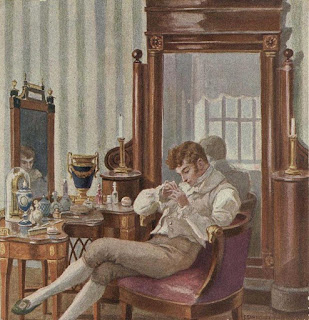So this evening, as Marie and I were conversing, we began to talk about superfluous men. I explained that they were a feature of Russian society during the nineteenth century: that they were over-educated, unemployed, and had enough independent wealth that they could afford to stay unemployed more or less indefinitely. So they traveled, they visited each other, they went to parties, and they accomplished nothing. Some of them contributed to the social strains that finally tore apart the Russian Empire by becoming radicals, nihilists or anarchists.
And as we talked, I realized that we were talking about me.
Aren't we?
- Over-educated? Check.
- Unemployed? Check.
- Money to support myself anyway? Check.
- Accomplishing nothing? My God, have you been reading this blog?
- I've even started the travel, visiting my college reunion, Debbie, and Marie all within the last six weeks.
Probably it doesn't mean that, or the same argument would indict all retirees everywhere. But the character Eugene Onegin himself, as an individual, is self-centered and oblivious to others—their feelings and the effect he has on their lives. He accomplishes nothing except waste and destruction, not because he wants those things but because he is too thoughtless and too wrapped up in his own story to notice what he is doing until it's too late. Then after he has ruined his own situation, he suffers for it and blames fate or destiny instead of his own damn-fool negligence.
And I suppose I'm at risk of doing the same thing if I don't watch it. So perhaps I'd better watch it.




No comments:
Post a Comment